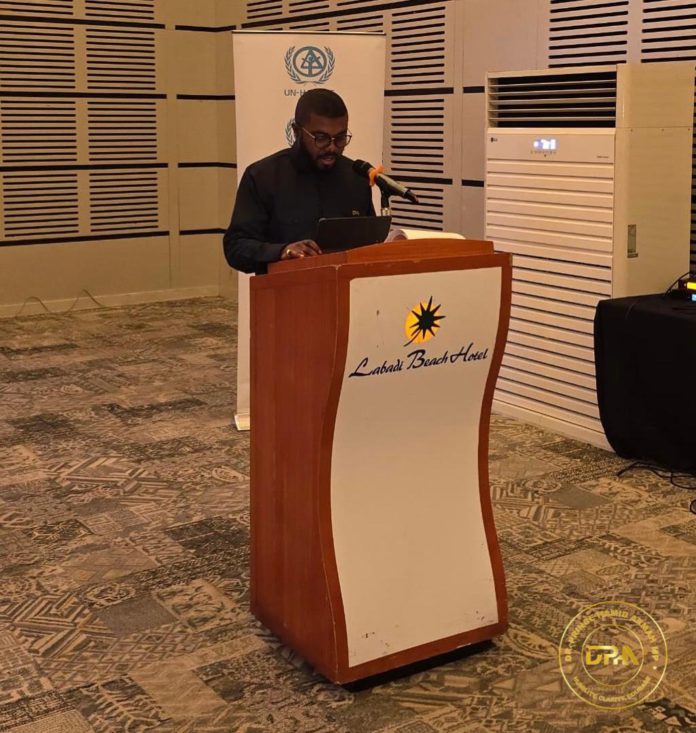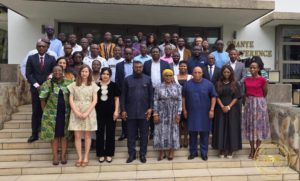
In a significant push towards eco-friendly development in Ghana’s burgeoning construction sector, Dr. Prince Hamid Armah, Member of Parliament for Kwesimintsim and Senior Advisor to the Minister for Works and Housing, has underscored the importance of collaborative efforts.
Speaking at a Prioritization Workshop on May 8, 2024, Dr. Armah highlighted the critical need for collaborative efforts to incorporate sustainable materials in building practices, essential for mitigating climate impacts and fostering resilient urban environments.
As urban populations swell, reaching a near majority of the country’s demographic, the pressure on urban infrastructure and environments intensifies.
Dr. Prince Armah, in his comprehensive address, detailed the significant strides that must be taken to offset the environmental impacts exacerbated by rapid urbanization.
“With urban populations nearing 58% and an annual urbanization rate of 3.3%, the need for sustainable development has never been more pressing,” he asserted, referencing data from the Ghana Statistical Service (GSS).

The workshop highlighted the critical role of sustainable materials in curbing the adverse effects of construction on the environment.
Dr Armah passionately advocated for moving beyond mere discussions to implementing concrete, actionable strategies that promise a greener future.
He articulated several strategic approaches essential for revolutionizing construction practices, including the adoption of energy-efficient systems and green building certifications.
He stressed the significance of stakeholder collaboration, noting that the workshop marks a decisive step toward formulating a robust framework for sustainability in Ghana’s built environment.
With a stirring call to action, the Kwesimintsim MP urged attendees to commit to sustainable practices passionately.
“Let us unite in our efforts to forge a sustainable path forward. Your engagement today is pivotal to our shared vision of a greener, more sustainable future,” he concluded, expressing gratitude to the participants for their dedication to transformative change.
The workshop ended on a high note, with stakeholders reaffirming their commitment to prioritize sustainable materials and practices, setting a proactive agenda for the evolution of Ghana’s built environment.





